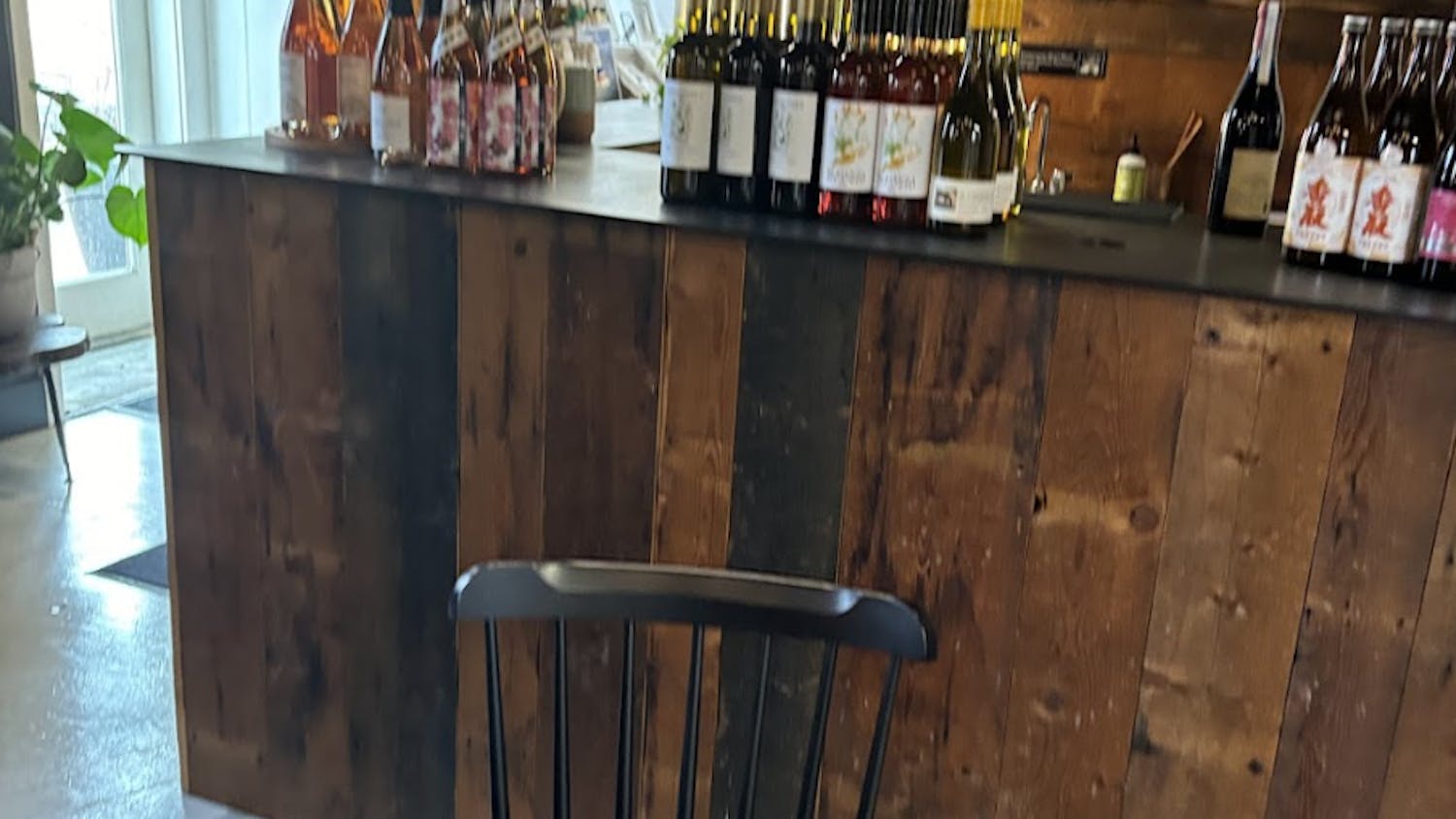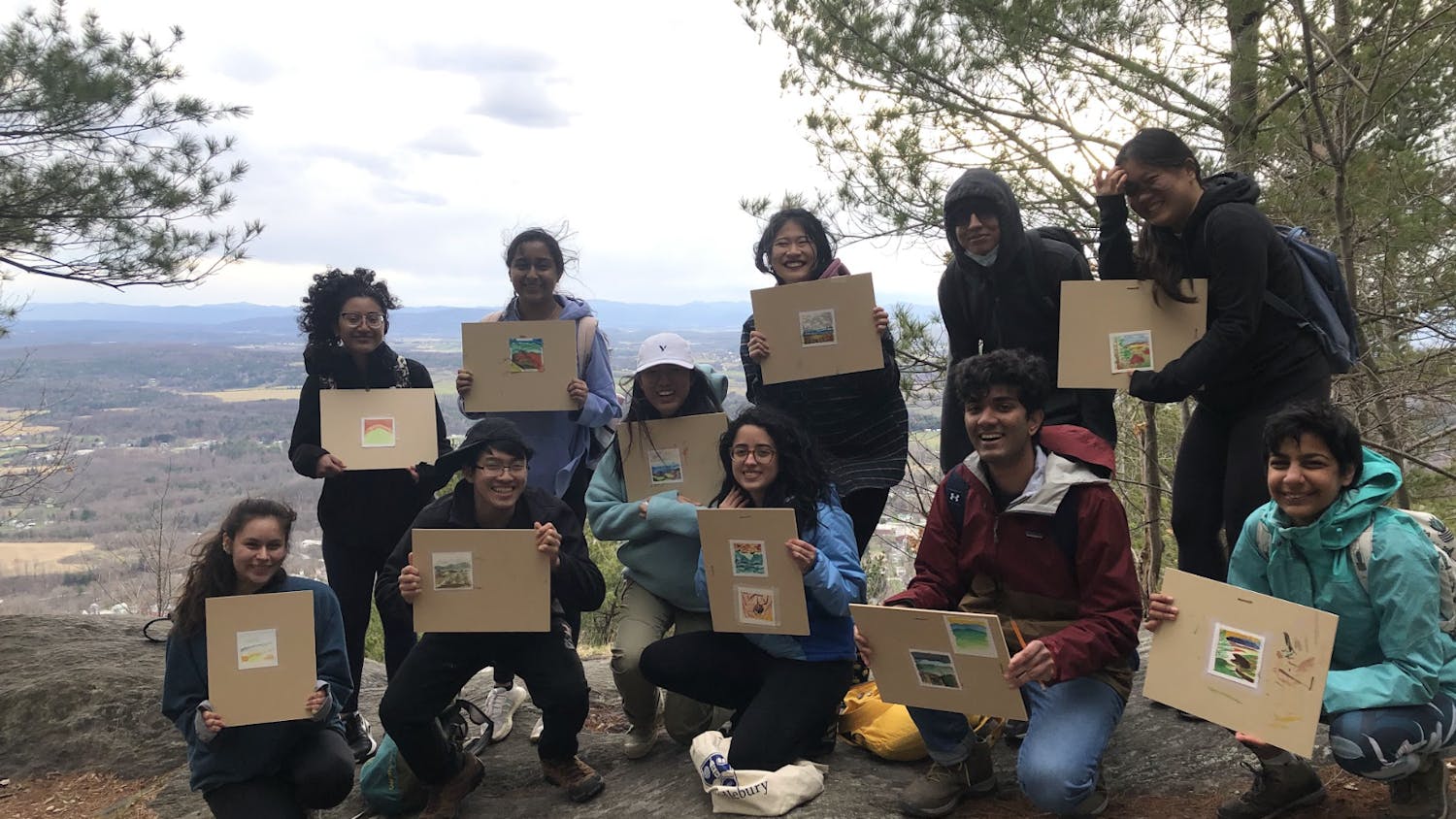This September marks the 27th anniversary of the Vermont Folklife Center. Minnesota native Brent Bjorkman, an experienced folklorist who took over as executive director three years ago when Jane Beck stepped down, has three goals for the center: to validate voices across the state, to educate the public and to preserve Vermont’s history.
“I get to discover the everyday culture of the world locally,” he said. Bjorkman explained that folklore is essentially the knowledge of people.

Once the associate director of the American Folkorist Society, Bjorkman, who graduated from Western Kentucky University, enjoys talking to Vermonters. Many times individuals the center chooses to interview question why anyone would care about them and their stories, but Bjorkman is happy to share their unique tales with others. The center currently has five thousand oral interviews in its archive. Most were recorded on cassettes and will soon be converted to digital media. The interviews will be available online for all to access, as well.
“We have people call us and ask if we still have the interview someone at the center conducted with their grandparent in 1991,” he said.
According to Bjorkman, finding people to interview is an “organic” process. He often determines what group of people the center has yet to target or what “emergent” topics are especially pertinent. Currently, the Vermont Folklife Center is interviewing those individuals involved in sustainable energy (both solar and wind).
“These are stories of everyday life and of people who you will not read about in a history book,” said Bjorkman. “Vermont is a microcosm of innovation and we discover how people got started and learn about their journey.”
An important part of the center’s mission is also to establish resources for the public’s use. These opportunities include radio programs, exhibits and courses. From March through May, the center holds daylong classes to teach those who are interested about folklore. In addition, for the past six years teachers have been invited to attend the Discovering Community Summer Institute. The weeklong course teaches professors how to create digital audio and videos, which they can use to profile individuals. It is a way to “create and share knowledge” and to blend oral history with digital media.
Last year, the center organized an exhibit titled “The Golden Cage.” The in-depth study of Mexican migrant workers and Vermont dairy farmers. 4,000 individuals visited, including 40 school classes. The center worked with the Migrant Coalition on what Bjorkman believes was a “provocative” project.
A Scandinavian American, Bjorkman understands the importance of family history. He says his relatives share countless stories, narratives and food and holiday traditions. This is why he began studying folklore and treasures the fellow folklorist Barre Toelken’s quote: “Folklore comes early and stays late in life.”
The Vermont Folklore Center is a non-profit group and is free to the public. It fundraises and also benefits from the private donations of individuals and foundations. Individuals who choose to become members of the center receive discounts on store purchases and often give generous donations.
The archives at the center are plentiful, which is why Bjorkman believes the college sees the center as an asset. Two years ago College Professor Emeritus, John Elder, taught a class called “Portrait of a Vermont Town” in which students interviewed residents of Starksboro, Vt. The following year his “Farm Stories” class talked to local farm families that live near the College. Both classes attended ethnographic workshops at the center and ultimately created an exhibit.
“In each case, excellent sessions on interviewing by Greg Sharrow helped them [the students] to develop meaningful conversations and relationships with the people they were meeting,” said Elder. “Context is meaning. If our students can relate their classes to the surrounding history, culture and concerns of western Vermont, they will be enriched in many ways.”
Now in her 12th year as operations manager at the center, Sarah Stahl is also the store’s buyer. Stahl has worked in retail since the age of 18 and attends regional shows and church fairs to find Fair Trade products. She has many Northeast producers, but also has several international contributors, as countries like China have now created Fair Trade markets.
“I buy items that stay within our mission,” she said. “Many of the goods are handcrafted, like our recycled African and Vietnamese ornaments.”
The center’s store sells books on ethnographies, as well as on the history of Vermont. This year Stahl was especially thrilled with the center’s annual gingerbread house celebration, which garnered approximately 70 entries.
Next month and continuing into March, the center has organized an exhibit titled “Women Town Clerks of Vermont.” Bjorkman believes these women are the “first entry into the state government” and the people “who you go to with gripes.” Eight different women will be profiled with both text and sound for all to visit. As always, admission is free. There is also an active component to the programming: each of the three Thursdays in March, the center will feature a different presentation. The eight town clerks will come to the first meeting, the second meeting is a discussion about the new Australian ballot system in Vermont town elections and the third is a talk by Frank Bryan, political science professor at the University of Vermont, who will discuss town meetings and the role of women.
“The center is a portal to the culture and traditions of Vermont, most importantly through its own respectful, inquisitive and high-spirited links to local communities and individuals,” said Elder.
Photographer Ned Castle has also teamed up with the Folklife Center on a project he calls “HighLow,” which will be shown until Jan. 29. In each case, there are two different photographs of a Vermont teenager, one in a high and one in a low period of his/her life. Accompanying audio is also available. Castle worked with the Vermont Coalition of Runaway and Homeless Youth Programs on his project.
The center’s shop is open from Tuesday to Saturday from 10 a.m. to 5 p.m. and the archive is open Wednesday through Friday, though appointments are necessary. Contact the office at (802) 388-4864, Monday through Friday from 9 a.m. to 5 p.m., for more information. If you are interested in an internship or work-study position at the center, please contact Bjorkman at bbjorkman@vermontfolklifecenter.org or at (802) 388-4964.
Vermont Folklife Center finds unique voices
Comments



